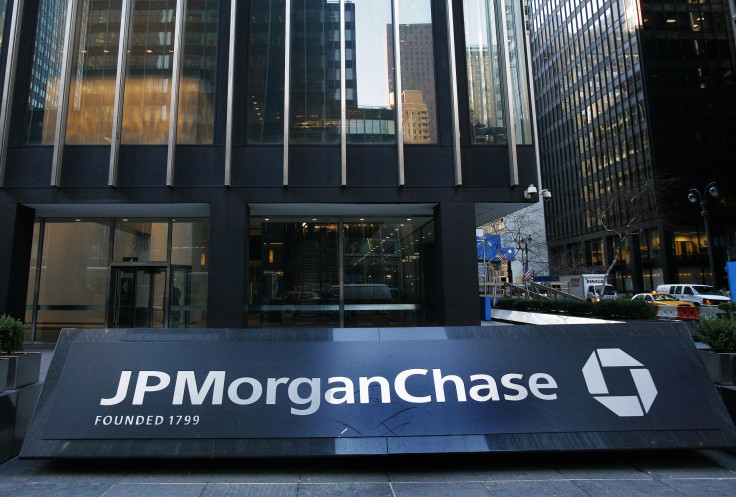J. P. Morgan's (NYSE:JPM) Madoff Nightmare Resurfaces As Criminal Investigators Said to Close In On The Beleaguered Bank

Almost a year ago today, Dominick Carollo, Steven Goldberg and Peter Grimm stood before a judge and broke down as they pleaded for leniency before being sentenced to three to four years in jail for conspiracy to commit fraud. They'd been found guilty of manipulating auctions for municipal bond investment contracts in a case that took 10 years to bring to court and resulted in a combined $740 million fine for a group of American banks.
The three men were found to have skimmed hundreds of millions of dollars from funds set aside for new hospitals and infrastructure projects all across America.
Their sentencing that day -- Oct. 18, 2012 -- was heralded as a paradigm shift in American criminal life. No longer was America’s reigning crime syndicate working out out of the back alleys and shadows, but instead straight out of Wall Street's well-appointed offices.
Today as federal investigators continue to connect the dots from a series of banking investigations, the spectre of Bernard L. Madoff's largest ever Ponzi scheme is back in the news and hanging over JPMorgan. The New York Times reported on Thursday that federal prosecutors may take criminal action against the bank, accusing it of turning a blind eye to Madoff’s $65 billion scheme.
JPMorgan's latest headache comes hot on the heels of its tentative $13 billion settlement last week with the government for mortgage-related misdeeds and this week’s revelation that the bank may have to pay another $5.75 billion to settle more mortgage claims from other investors.
Such is the serious nature of the new allegations that the bank reportedly has held talks with prosecutors about deferring any prosecution. That would suspend criminal charges against the bank in exchange for a fine and other concessions as well as the bank's acknowledgment that any future violations would subject it to the original criminal penalties. Reports have also said that JPMorgan may have to hire an independent monitor for its business behavior.
Criminal charges against corporations are rare, but if pursued against JPMorgan they would undoubtedly damage the company’s reputation, revenue streams and customer base. Since the criminal indictment of Enron in 2006 and Arthur Andersen in 2002, prosecutors have been wary of using such tactics for fear of bad ripple effects on the wider economy. Banks prosecutors and regulators also worry that their scale and interconnectedness would mean that such actions could have worldwide negative consequences. In fact, a little-known rule says that prosecutors must consider “collateral consequences,” like job losses and economic issues that such action could impact.
Manhattan's U.S. attorney Preet Bharara, who's handling the JPMorgan case, said recently that he disputes the rule because no company is too big to fail.
In the years since his conviction, Madoff has indicated that the banks he dealt with likely turned a blind eye to his crimes. In an email Madoff wrote to Fox News from his jail cell, he claimed that banks, primarily JPMorgan, where he held an account for more than 20 years, must have known about his illegal activities.
A civil case a few years ago accusing JPMorgan of racketeering and assisting Madoff in his Ponzi scheme was dismissed in 2011 due to a technicality that bans certain civil claims in RICO cases based on securities fraud that also covers aiding and abetting claims.
Some commentators believe that failure in civil court led directly to investigators pursuing a criminal case.
The FBI and United States attorney-led investigation is likely to hinge on a series of emails suggesting the bank continued to work with Madoff long after questions surfaced about his conduct. One JPMorgan employee's email to Madoff expressed concern that the schemer's returns “seemed a little too good to be true.”
While no decision has been made on what path investigators may take, the New York Times report cited people close to the case who believe that prosecutors will defer prosecution and that the bank will avoid serious criminal punishment.
© Copyright IBTimes 2024. All rights reserved.












